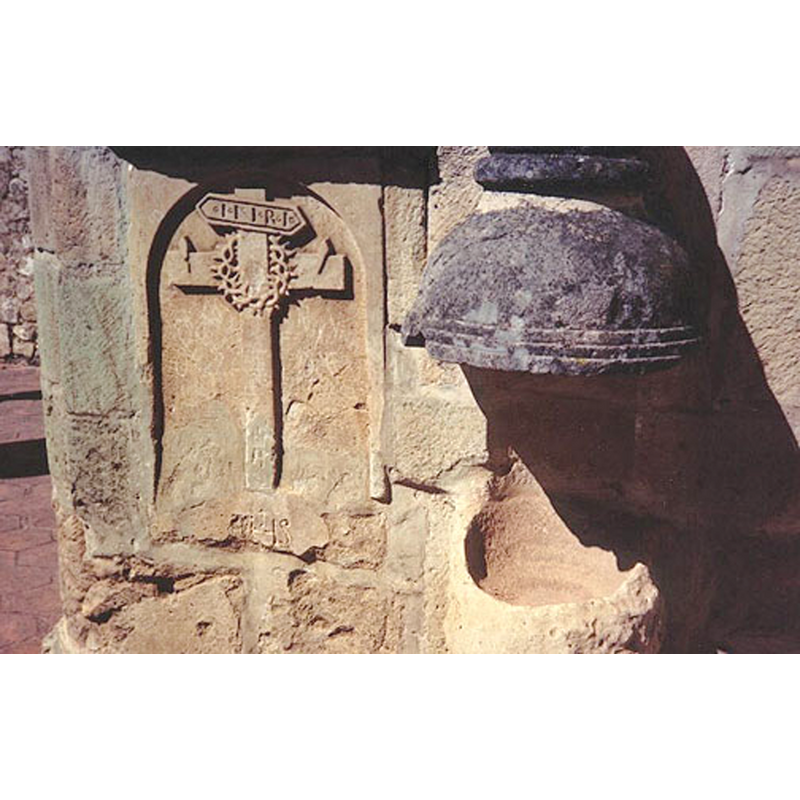Cuilapan / Cuilapán
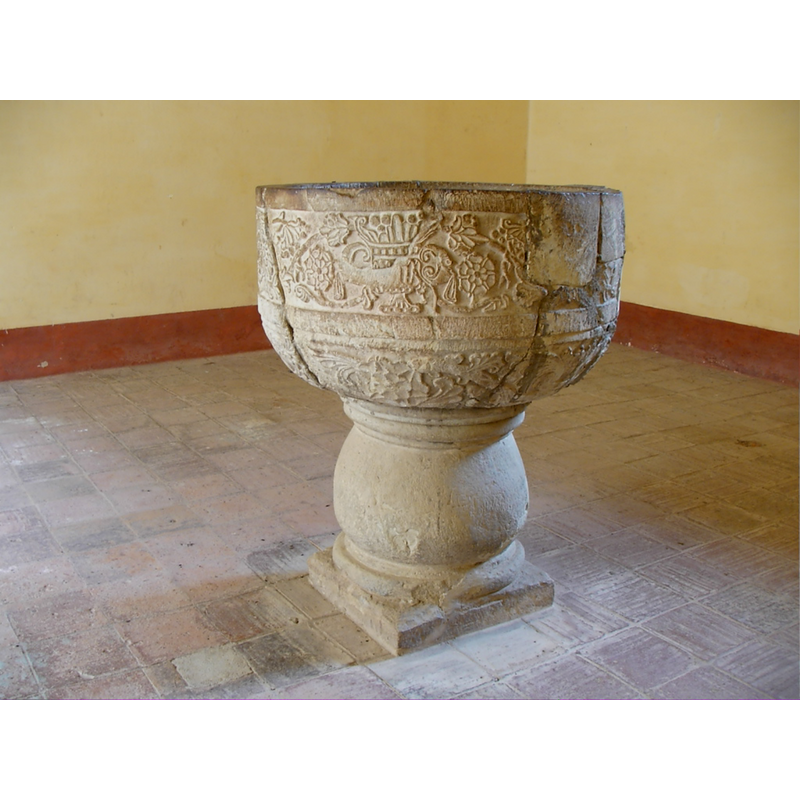
Image copyright © Mónica Domínguez Torres, 2006
Standing permission
Results: 14 records
B01: design element - motifs - foliage
B02: symbol - mascaron - winged mascaron (Tequitqui)
B03: symbol - mascaron - winged mascaron (Tequitqui)
B04: symbol - Tequitqui
B05: design element - motifs - floral - rosette
BBL01: design element - motifs - moulding - flat moulding
BU01: design element - motifs - foliage (Tequitqui influence?)
view of font
view of basin
view of church exterior - façade
Copyright Statement: Image copyright © Audrey and George DeLange, 2006
Image Source: photograph by Audrey and George DeLange [www.delange.org]
Copyright Instructions: Image and permission received (e-mail of 2 June 2006)
view of church exterior
Scene Description: the old convent
Copyright Statement: Image copyright © Audrey and George DeLange, 2006
Image Source: photograph by Audrey and George DeLange [www.delange.org]
Copyright Instructions: Image and permission received (e-mail of 2 June 2006)
view of church exterior
Scene Description: the old convent and surrounding buildings
Copyright Statement: Image copyright © Audrey and George DeLange, 2006
Image Source: photograph by Audrey and George DeLange [www.delange.org]
Copyright Instructions: Image and permission received (e-mail of 2 June 2006)
view of church interior - detail
Scene Description: the 'capilla abierta' [open chapel], a characteristic feature in early colonial churches
Copyright Statement: Image copyright © Audrey and George DeLange, 2006
Image Source: photograph by Audrey and George DeLange [www.delange.org]
Copyright Instructions: Image and permission received (e-mail of 2 June 2006)
view of stoup
Copyright Statement: Image copyright © Audrey and George DeLange, 2006
Image Source: photograph by Audrey and George DeLange [www.delange.org]
Copyright Instructions: Image and permission received (e-mail of 2 June 2006)
INFORMATION
Font ID: 11901CUI
Object Type: Baptismal Font1
Font Date: ca. 1580?
Font Century and Period/Style: 16th century(late?), Tequitqui
Church / Chapel Name: Ex-Convento dominico e Iglesia de Santiago Apóstol
Church Patron Saint(s): St. James the Greater [aka James the Great, James the Elder]
Church Notes: built ca. 1530
Church Address: C.P. 71240, Cuilápam de Guerrero, Oaxaca, México
Site Location: Oaxaca, Mexico, North America
Directions to Site: The ex-convent is located near the classical site of Monte Albán, W of road 175, 10 km SSW of Oaxaca de Juarez
Additional Comments: damaged font / altered font / composite font
Font Notes:
Click to view
The roughly hemispherical basin is the only original part of this font, and it is badly damages , with large inserts of new stobe where the old parts went missing; the surface of the basin is covered in carved reliefs and divided into basin sides and underbowl by a flat moulding all around; the sides show several large motifs, including two which appear to be a syncretic creation somewhat resembling a winged mascaron, while suggesting both a cherub and a symbols of the Sun; another of the large motifs, though adorned with classical rosettes, has clear influence of the native Mexican arts in the scrolls and garlands that surround them. The underbowl is decorated with large foliage motifs in which the native element colours the more Western European features and style. The stem and lower base are modern. [We are grateful to professor Mónica Domínguez, of the Dept. of Art History, University of Delaware, for her images of this font, and to Audrey and George DeLange, of www.delange.org, for their images of the convent]
COORDINATES
UTM: 14Q 736463 1880137
Latitude & Longitude (Decimal): 16.99315, -96.779047
Latitude & Longitude (DMS): 16° 59′ 35.34″ N, 96° 46′ 44.57″ W
MEDIUM AND MEASUREMENTS
Material: stone
Font Shape: hemispheric, mounted
Basin Interior Shape: round
Basin Exterior Shape: round
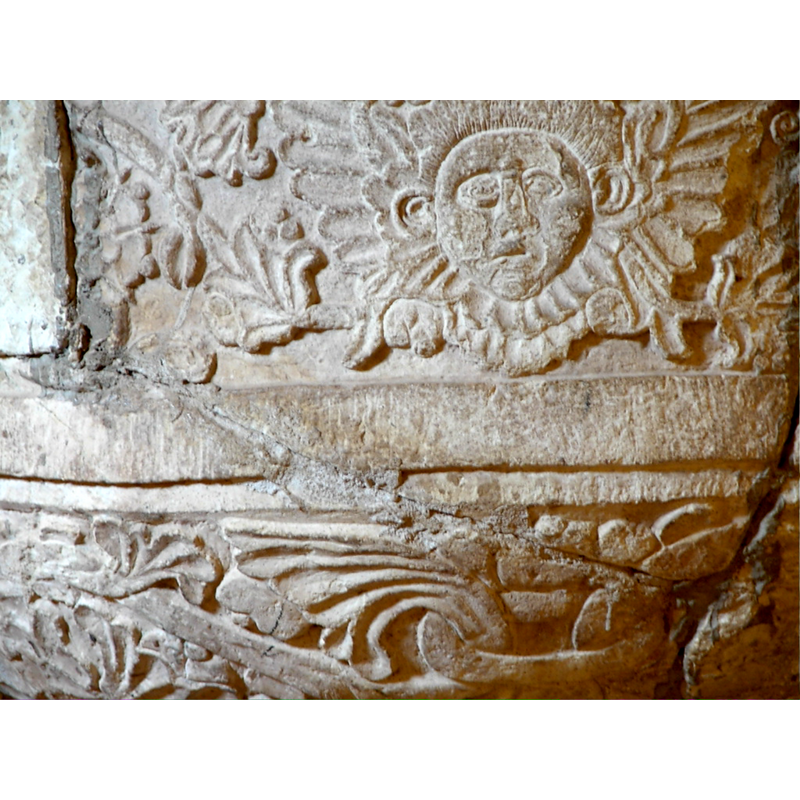
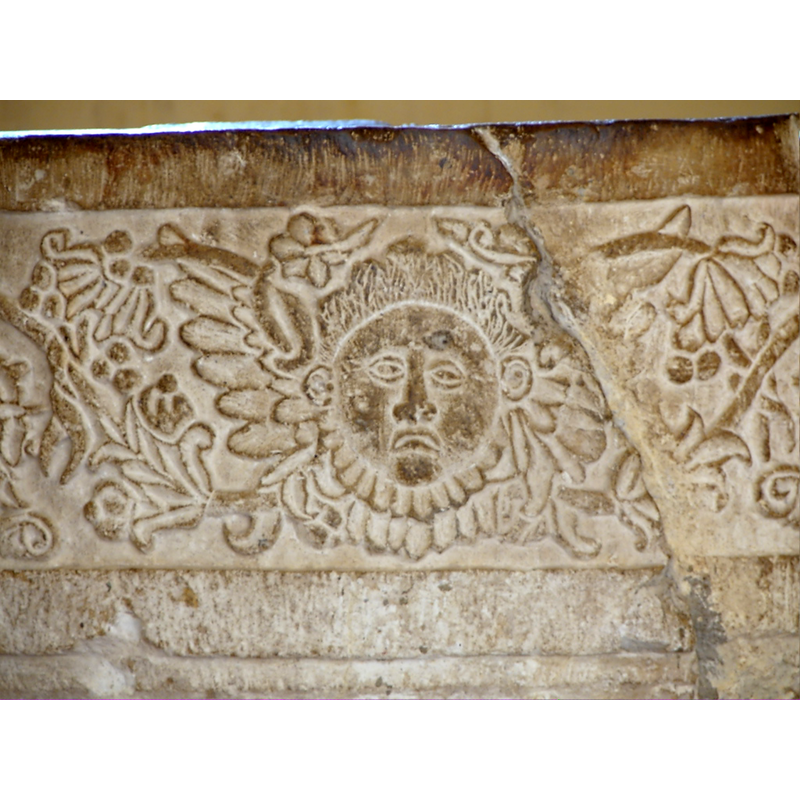
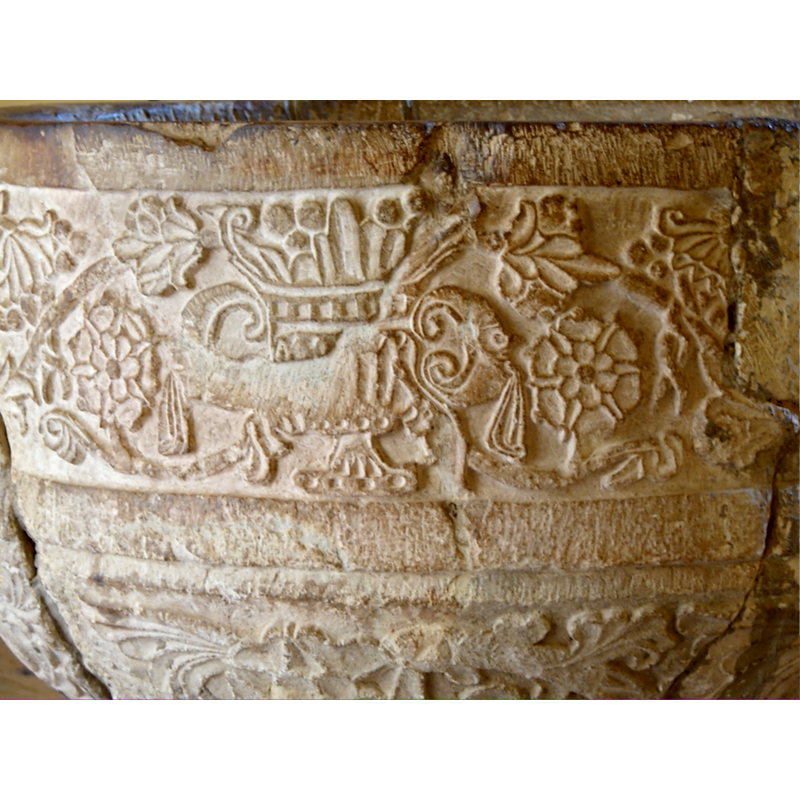
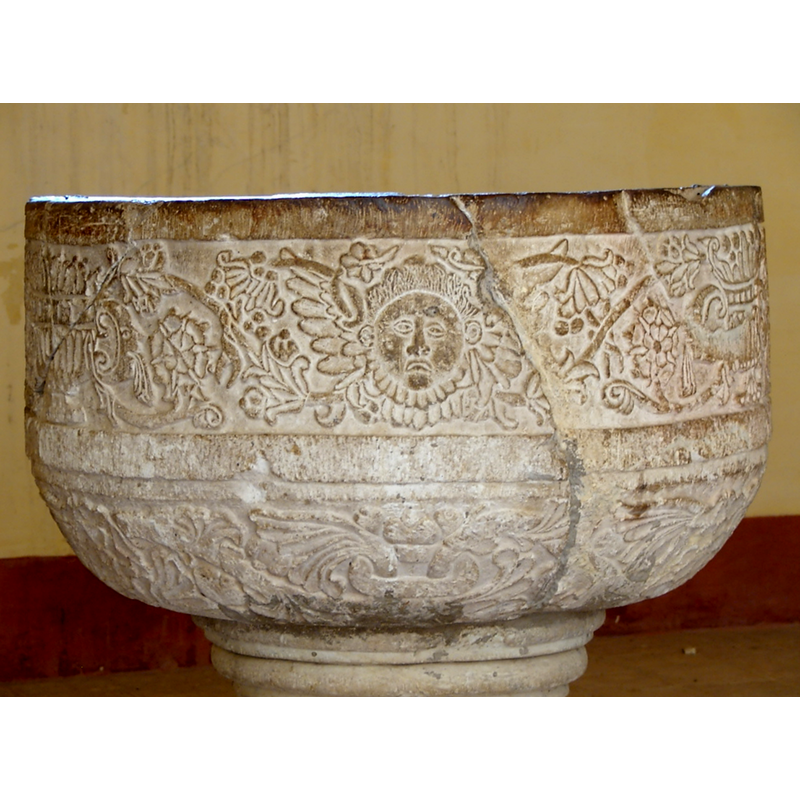
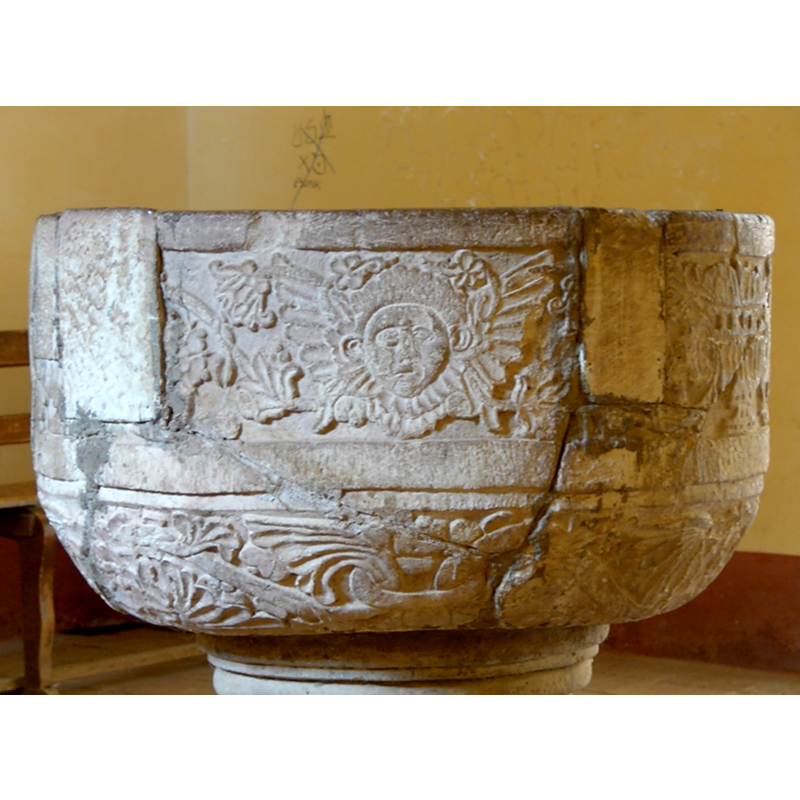
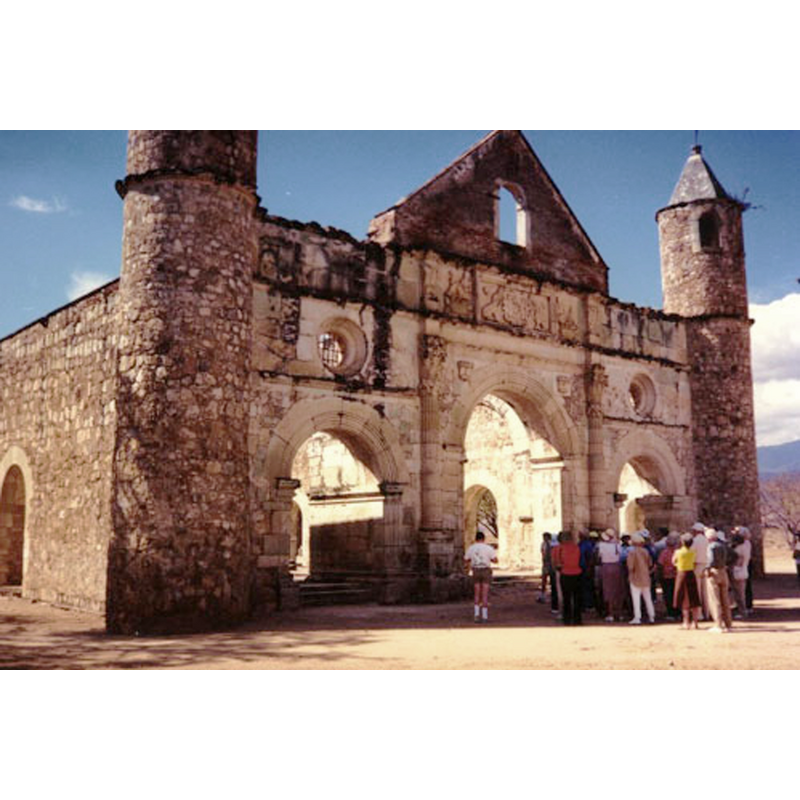
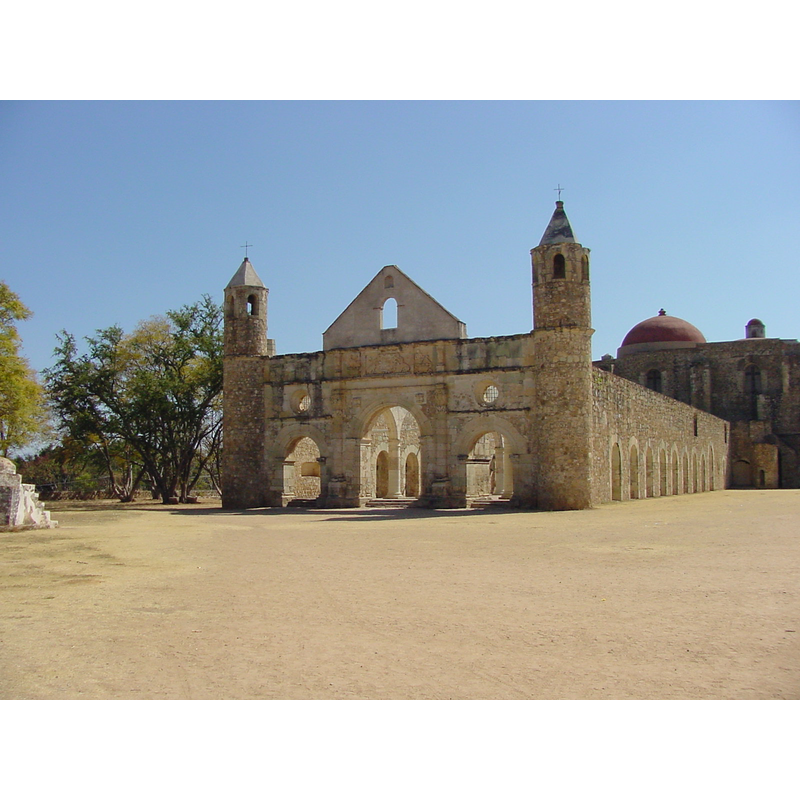
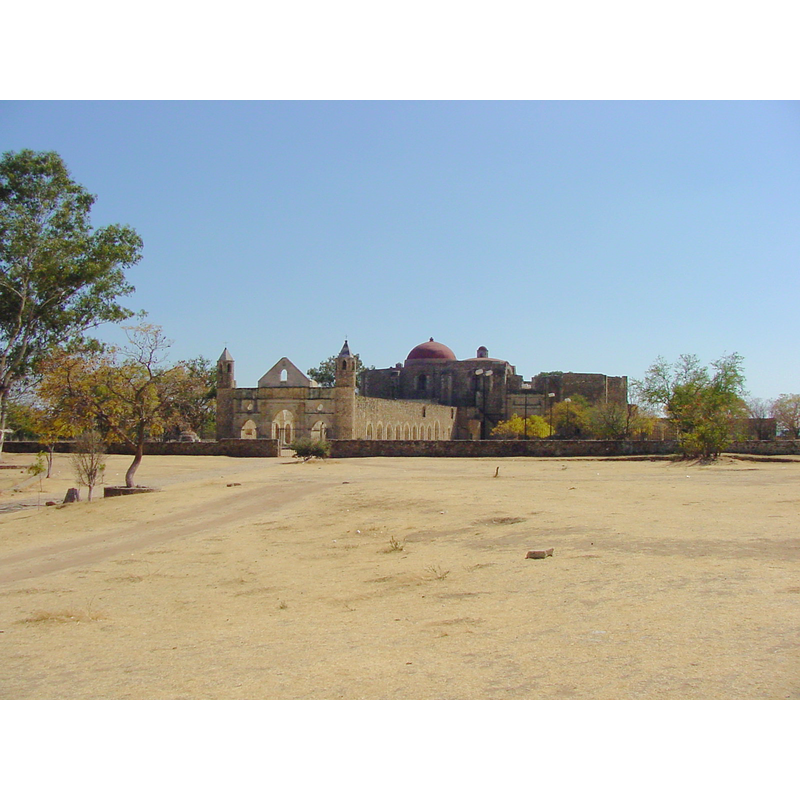
![the 'capilla abierta' [open chapel], a characteristic feature in early colonial churches](/static-50478a99ec6f36a15d6234548c59f63da52304e5/compressed/1060602014_compressed.png)
